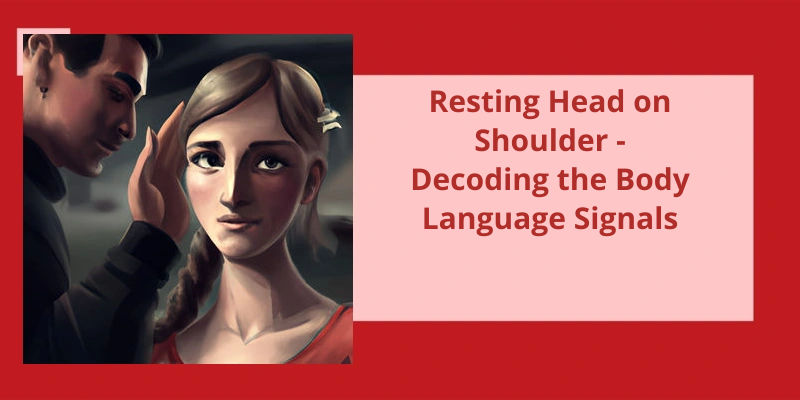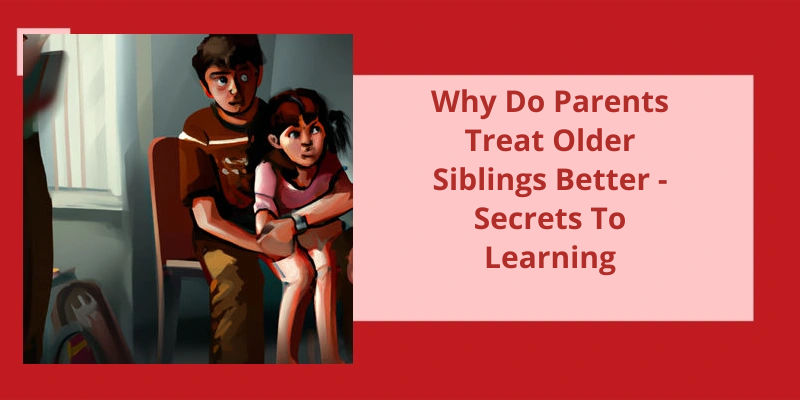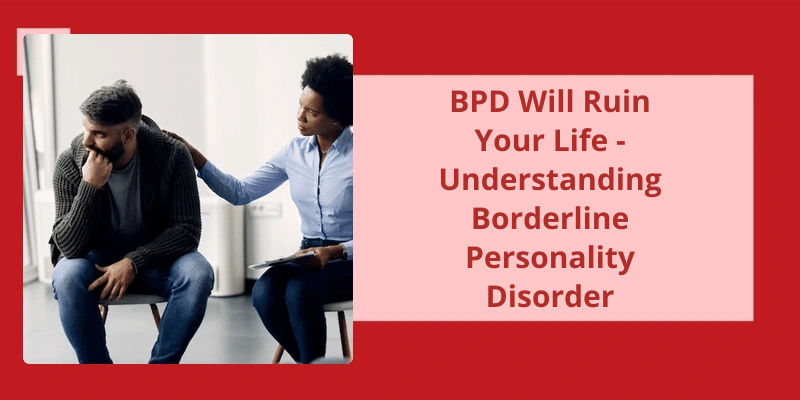When someone poses the question "Are you mad at me?" it’s the potential to invoke a myriad of emotions and thoughts within ourselves. This simple inquiry can open the floodgates of self-reflection, forcing us to confront our true feelings, grapple with past experiences, and evaluate the dynamics of our relationship with the inquirer. It’s a moment that calls for tact, empathy, and a delicate balance between honesty and compassion. Whether the answer is a resounding "yes," a reassuring "no," or a nuanced "maybe," the significance of this question lies in it’s power to uncover deeper layers of our emotional landscape and foster genuine communication. Understanding the complex reasons behind one's inquiry is crucial in navigating this delicate situation, as it requires us to introspect, acknowledge our own feelings, and approach the ensuing conversation with grace and understanding. Thus, when someone asks us if we’re mad at them, it presents an opportunity for growth, strengthening bonds, and deepening our emotional connections.
What Does It Mean When Someone Says Are You Mad at Me?
When someone asks, “Are you mad at me?” it usually indicates that they’ve noticed a change in your behavior. Perhaps you’ve been acting distant, quiet, or even pouting. They’re aware that something seems off, but they can’t pinpoint any specific action or mistake on their part that could have caused your change in demeanor. Thus, they seek reassurance by directly asking if you’re upset with them.
In most cases, when someone asks this question, they genuinely don’t want you to be mad at them. They may be concerned about the state of your relationship or worried that they’ve unknowingly done something wrong. It’s a plea for understanding and a desire to address any issues that may exist between the two of you.
When confronted with this question, it’s important to respond honestly and openly. If you’re indeed upset or angry, it’s essential to communicate your feelings calmly and clearly. This allows both parties to have a constructive conversation and work towards resolving any conflicts.
On the other hand, if you aren’t mad at the person, it’s crucial to reassure them and explain the reasons behind your changed behavior. This open communication can alleviate their concerns and help them understand that your emotions may stem from factors unrelated to them.
It’s essential to approach such conversations with empathy and understanding. While it may be tempting to dismiss the persons concerns, it’s crucial to acknowledge their feelings and address the issue respectfully. This way, you can strengthen your relationship and foster a healthier understanding between both individuals.
Strategies for Effectively Communicating Feelings in a Calm and Non-Confrontational Manner
- Choose the right time and place to discuss your feelings.
- Use “I” statements to express your emotions rather than blaming the other person.
- Listen actively and attentively to the other person’s perspective.
- Avoid interrupting or speaking over the other person.
- Take deep breaths to stay calm and composed during the conversation.
- Avoid negative body language, such as crossing arms or avoiding eye contact.
- Focus on problem-solving rather than dwelling on past mistakes.
- Show empathy and understanding towards the other person’s emotions.
- Take breaks if the discussion becomes too heated, and revisit it when emotions have cooled down.
- End the conversation by expressing gratitude for the opportunity to share your feelings.
Navigating interpersonal relationships can be challenging, especially when it comes to gauging someone’s emotions. At times, you might find yourself wondering if someone is mad at you, leading to the question of whether it’s okay to ask. While it may not always be easy or enjoyable, there are instances where addressing this concern becomes crucial. In this article, we will explore the various facets of asking someone if they’re upset, emphasizing the need for sensitivity and understanding while also recognizing that not all negative emotions are directed towards us.
Is It OK to Ask Someone if They Are Mad at Me?
When it comes to asking someone if they’re mad at you, it’s important to approach the situation with empathy and understanding. Sometimes, in our interactions with others, we may unintentionally say or do something that upsets them. In such cases, it’s perfectly acceptable to inquire if they’re feeling upset or angry.
However, it’s crucial to strike a balance and not overdo it. Constantly questioning someone about their emotions can come across as needy or intrusive. It’s important to respect their boundaries and give them the space they need to process their feelings.
Additionally, it’s essential to recognize that not all negative emotions are a direct result of our actions. People have their own lives, experiences, and emotions outside of our interactions. It’s important to be aware that sometimes, their anger or frustration may not have anything to do with us.
It’s important to listen attentively to their response without becoming defensive or dismissive. Validating their feelings and taking responsibility for any actions that may have contributed to their anger is a key aspect of effective communication.
Lastly, it’s important to remember that emotions are complex and can often be multifaceted. It’s not uncommon for people to have mixed emotions or feel upset for various reasons. Being understanding and compassionate can go a long way in fostering open and honest communication.
However, by approaching it with empathy, respecting personal boundaries, and actively listening, it’s possible to navigate these conversations in a constructive manner. Remember, sometimes it’s not about us, and it’s essential to be okay with that possibility.
Strategies for Managing Your Own Emotions During Conflict
- Recognize and acknowledge your emotions.
- Take a pause before responding.
- Practice deep breathing exercises.
- Engage in physical activity or exercise.
- Journal or write down your thoughts.
- Seek support from a trusted friend or therapist.
- Develop and use positive self-talk.
- Practice mindfulness or meditation.
- Identify and challenge negative thoughts.
- Set healthy boundaries and communicate assertively.
- Find healthy outlets for stress relief.
- Practice forgiveness and letting go.
- Educate yourself on conflict resolution skills.
- Focus on finding common ground and compromise.
- Practice empathy and understanding towards others.
- Take care of yourself through self-care activities.
- Avoid personalizing or taking things personally.
- Develop problem-solving and conflict resolution strategies.
- Practice patience and tolerance.
- Reflect on past conflicts and learn from them.
- Be open to feedback and self-reflection.
- Remember to prioritize your mental and emotional well-being.
Finding more tactful and considerate ways to address potential tension in relationships is always beneficial. Instead of bluntly asking, “Are you mad at me?” you can opt for alternative phrases that underscore your concern while promoting open communication. These alternatives include inquiring about performance, expressing a desire for a conversation, asking about emotions, or suggesting the need for a discussion to address potential distance or insecurity. Choosing these alternatives fosters a more constructive conversation while demonstrating your commitment to understanding and resolution.
What Can I Say Instead of Are You Mad at Me?
Finding alternative ways to ask someone if they’re mad at you can be challenging, especially if you want to approach the topic in a sensitive and non-confrontational manner. Instead of using a direct and potentially accusatory question like “Are you mad at me?”, consider asking open-ended questions that invite conversation and allow the other person to express their feelings more freely.
One approach could be to ask: “Do you’ve any issues with my performance?”. This question acknowledges the possibility of tension or dissatisfaction while focusing on your specific actions or behavior rather than making assumptions about the other persons emotions.
Another option is to ask: “Are we okay?”. This question allows the other person to assess the overall state of your relationship and address any concerns they may have. It promotes open and honest communication without assuming that they’re mad at you.
A more empathetic approach could be: “How are you feeling?”. This question demonstrates your willingness to listen and understand the other persons emotions, creating an opportunity for them to share any frustrations or concerns they might have.
If you sense distance or a change in the dynamic between you, you could say: “It feels like weve been distant, can we talk about it?”. This statement highlights your observation without directly accusing the other person, providing them with an opportunity to open up if something is bothering them.
Alternatively, posing the question, “Is something on your mind?” shows that you’re attuned to their emotions and care about their well-being.
In situations where you suspect that you may have done something to upset the other person, a considerate way to address it could be: “Have I done something to upset you?”. This question expresses your sincerity and willingness to take responsibility for your actions.
Lastly, if you perceive that the other person may need some space, you can ask: “Do you need some space?”. This question respects their boundaries and allows them to take time for themselves if necessary.
In summary, approaching the topic of potential anger or frustration requires a sensitive and open-minded approach. By using alternative phrases and questions, you can create an environment that encourages open communication and understanding, fostering a healthier relationship.
Source: How to ask someone why they were mad without making it …
However, emotions are complex and often subjective experiences that can vary greatly from person to person. Being asked if you’re mad can feel invasive and dismissive, as if your true emotions are being overlooked or invalidated. It can also be frustrating because it implies that others think they know you better than you know yourself. Furthermore, it can be aggravating to have someone make assumptions about your emotions without taking the time to listen and understand your perspective.
Why Do I Get Mad When Someone Asks if I’m Mad?
There can be many underlying reasons why you may feel mad or irritated when someone asks if youre mad. One possible explanation is that being questioned about your emotions can feel intrusive and invasive. It can give the impression that the other person is prying into your personal space without considering your boundaries.
Another reason for feeling anger in such situations is that you may perceive the assumption behind the question as invalidating. When someone assumes your emotional state without giving you the chance to express yourself, it can make you feel unseen and unheard. It disregards your ability to communicate your feelings effectively, which can be frustrating and disrespectful.
Furthermore, when someone tries to guess your emotions based on your facial expressions or tone of voice, it can make you feel misunderstood. Peoples faces are naturally more expressive, and their tones can fluctuate due to various reasons that may not be directly related to their emotional state. As a result, being falsely judged based on these external factors can lead to a sense of invalidation and frustration.
Additionally, it’s important to consider that emotions are complex and multi-faceted. They can’t always be accurately deciphered through external signs alone. Hence, when someone assumes your emotional state without engaging in a meaningful conversation, it can give the impression that they’re oversimplifying your emotions and disregarding their complexity.
Overall, feeling anger or annoyance when someone assumes or tries to guess your emotions is a valid reaction. It can stem from a variety of reasons, such as feeling invaded, invalidated, misunderstood, and lacking trust. Recognizing and understanding these underlying factors can help in communicating your emotions more effectively and establishing healthier boundaries in your relationships.
Overcoming Anger: Providing Tips and Techniques for Managing Anger and Frustration in Response to Situations Where Someone Assumes or Guesses One’s Emotional State.
- Take deep breaths and count to ten before responding.
- Express feelings calmly and assertively without aggression.
- Practice active listening to understand others’ perspectives.
- Engage in physical activities to release built-up tension.
- Engage in relaxation techniques such as meditation or yoga.
- Seek professional help or counseling if anger persists.
- Identify triggers and develop coping mechanisms for them.
- Practice empathy and try to understand others’ intentions.
- Take breaks and step away from the situation if necessary.
When receiving a “Are you mad at me?” text, it’s important to approach the situation with care and understanding. Instead of jumping to conclusions or dismissing the message, consider responding with empathy and a willingness to address any potential misunderstandings. Open communication and a genuine desire to resolve any issues can help foster a healthy conversation and possibly mend your relationship.
How Do You Respond to a Are You Mad at Me Text?
When someone asks you if youre mad at them, it can often be a delicate situation to navigate. It’s possible that the text is in response to something you said or did that might have caused some misunderstanding or hurt feelings. In situations like these, it’s important to approach the conversation with empathy and understanding.
One way to respond to such a text is by expressing your curiosity and concern. You can say, “Could you tell me what I did to upset you? I want to understand so that we can address it together.”. By showing a genuine desire to understand their perspective, you open the door for honest communication and potential resolution.
Another approach is to express your need for clarity. You can say, “I think I deserve to know why youre angry with me. It’s important for me to understand your feelings so that we can work things out.”. This lets the person know that their emotions matter to you and that you value open and honest communication.
Acknowledging the tension between you can also be helpful. You can say, “I don’t like this tension between us. Can we talk about it? I want us to figure out a way to move forward and address any issues that might be present.”. By expressing your concern and desire to address the situation, you create a safe space for the other person to open up.
Sometimes, it might be appropriate to take responsibility for your actions. You can say, “Is there something specific I can apologize for? I want to make amends if Ive done something to upset you.”. This shows humility and a willingness to take ownership of your part in the situation, which can help facilitate a more productive conversation.
Finally, expressing your willingness to fix things and find a solution can be an effective way to respond. You can say, “Please tell me what I can do to fix things. I care about our relationship and want to make sure we’re on good terms again.”. This shows that you value the relationship and are committed to finding a way to mend any potential rift.
In summary, when someone asks if you’re mad at them, it’s important to respond with empathy, understanding, and a willingness to address the situation. By asking for clarification, expressing your concern, and showing a genuine desire to resolve any issues, you can create an open and honest dialogue that may lead to a resolution.
Conclusion
In conclusion, navigating interpersonal relationships can be challenging, particularly when it comes to deciphering someone's emotions and intentions. Rather than assuming an automatic defensive stance, it’s crucial to approach such inquiries with empathy and understanding. By engaging in honest and compassionate dialogue, we can build stronger connections and foster an environment of trust and emotional transparency. It’s through these meaningful interactions that we can quell anxieties, mend misunderstandings, and reinforce the bonds that bind us together as individuals.






